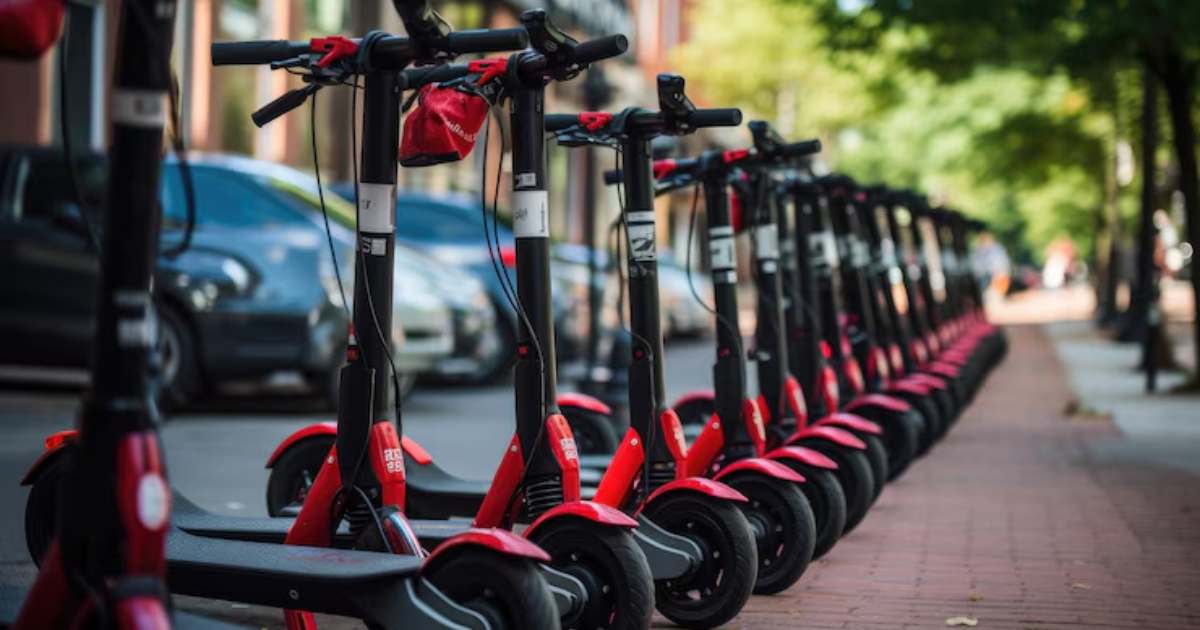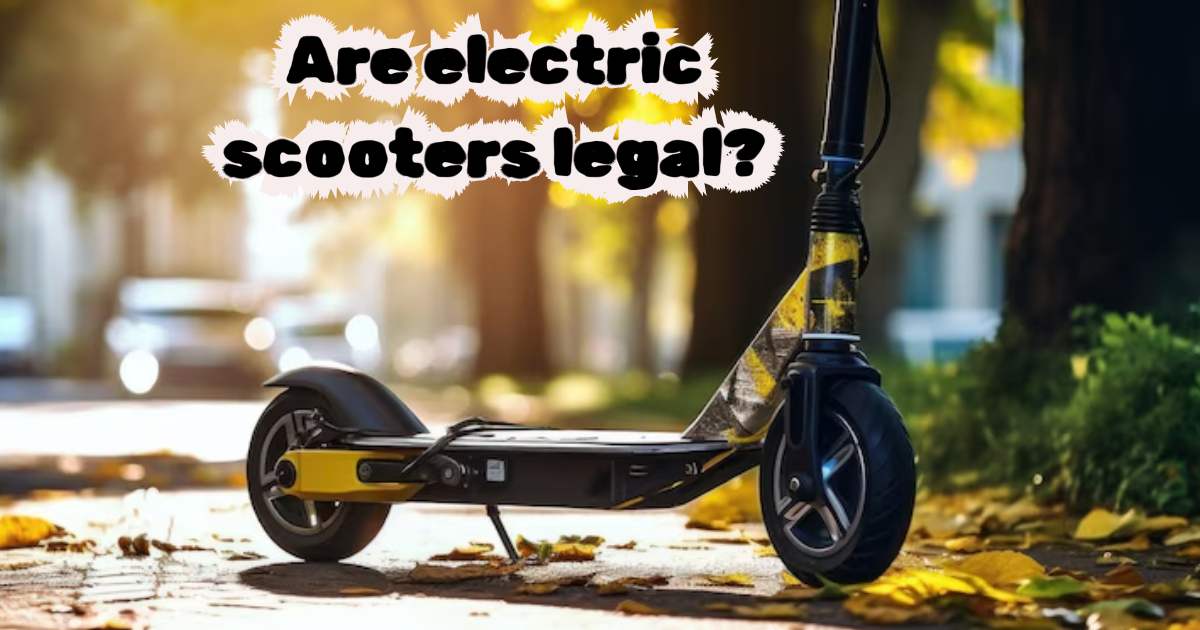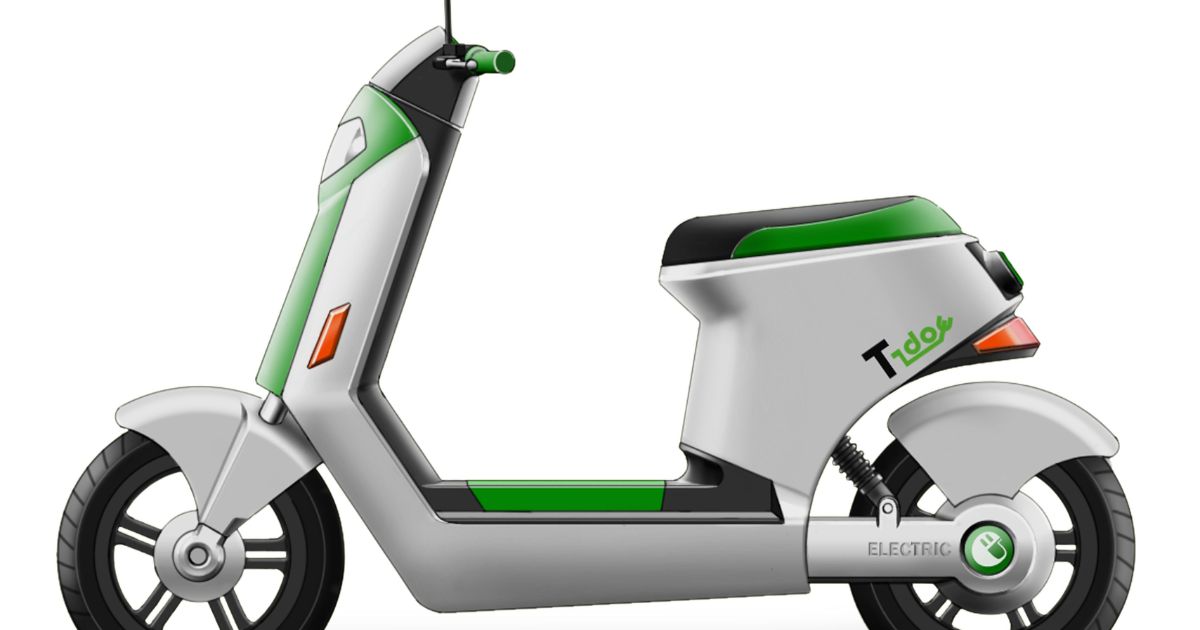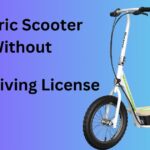Electric scooters, or e-scooters, have taken the world by storm as a convenient and eco-friendly way to navigate cities.
The legal status of these two-wheeled vehicles can be a confusing maze, especially for American travelers visiting the United Kingdom.
While e-scooters have gained widespread acceptance and are street legal in most U.S. states, the UK’s approach is quite different.
This comprehensive guide aims to clarify the current e-scooter laws in the UK as of 2024, helping American visitors make informed decisions during their stay.
Private scooters: the law today – January 2024
As of January 2024, it remains illegal to ride privately-owned e-scooters on public roads and cycle lanes throughout the United Kingdom.
This contrasts starkly with the United States, where most states have legalized and regulated the use of personal e-scooters, subject to specific rules and guidelines.
In the UK, e-scooters are classified as “Personal Light Electric Vehicles” (PLEVs), a category distinct from traditional bicycles or motorcycles. This classification subjects them to stringent regulations on their use on public roads.
Why are electric scooters illegal?
There are several key reasons why privately-owned e-scooters are currently prohibited from UK roads:
- Lack of Registration and Licensing: Unlike motor vehicles, e-scooters do not require registration, licensing, or insurance to operate, raising safety concerns.
- Limited Safety Features: Many e-scooter models lack essential safety features like rear lights, turn signals, and mirrors, which are mandatory for road-legal vehicles.
- Speed and Power Limitations: E-scooters may not conform to speed and power restrictions imposed on road-legal vehicles, posing potential risks to pedestrians and other road users.
In contrast, major U.S. cities like New York, Los Angeles, and Chicago have implemented comprehensive regulations governing the use of e-scooters, including speed limits, helmet requirements, and designated parking zones.
What if you’re caught?
For American tourists, the consequences of riding a privately-owned e-scooter on UK public roads can be severe.
If caught, you could face a fixed penalty notice of £300 (approximately $370) and six points on your driving license (if you have a UK license).
In some cases, the offense may even lead to prosecution, resulting in an unlimited fine and potential disqualification from driving.
A cautionary tale involves a U.S. visitor who was fined £300 and had their e-scooter impounded by authorities in central London for illegal use on the streets.
The incident serves as a stark reminder that operating an unregistered vehicle on public roads is taken seriously in the UK, regardless of one’s nationality.
Buying “illegal” scooters
While it may be tempting for Americans to purchase an e-scooter during their UK visit, intending to use it back home, it’s crucial to exercise caution.
Some retailers may sell models that lack necessary warnings about their illegality on UK roads or even offer high-powered variants that would never be legal for street use.
Authorities like Tom McNeil, the West Midlands Assistant Police and Crime Commissioner, have called for stricter regulations on the sale of non-compliant e-scooters, citing public safety concerns.
For American travelers interested in purchasing an e-scooter for use back in the U.S., it’s essential to research the specific laws and regulations in their home state or city.
Additionally, ensuring the model meets all safety and legal requirements is crucial to avoid potential issues upon returning.
Get updates on scooter law changes for US visitors
The legal landscape surrounding e-scooters in the UK is constantly evolving. To stay informed about potential law changes that could impact American visitors, consider signing up for email updates or following reputable news sources covering transportation and mobility news.
Some companies even offer incentives like rental discounts or exclusive offers for those interested in staying up-to-date on e-scooter regulations in the UK and other travel destinations.
Rented scooters: the law today – January 2024

While privately-owned e-scooters remain illegal on UK public roads, the government has implemented a nationwide rental trial scheme.
This program allows visitors, including Americans, to legally rent and ride e-scooters in designated areas, subject to specific rules and guidelines.
The rental trial scheme operates similarly to e-scooter rental programs in major U.S. cities like Portland, Denver, and Atlanta, where companies like Lime, Bird, and Spin provide dockless e-scooter rentals for short-term use.
Electric scooter trial areas in 2023 and 2024
As of January 2024, the UK’s e-scooter rental trials are active in 31 regions, including popular tourist destinations like:
- London
- Manchester
- Birmingham
- Edinburgh
- Bristol
- Newcastle
In London alone, the trial has seen remarkable success, with over 600 parking bays and 5,000 e-scooters deployed by the end of 2022, facilitating over 2.5 million trips totaling 6.5 million kilometers.
To participate in the rental trials, American visitors must meet the following requirements:
- Possess a valid driving license (full or provisional, categories AM, A1, A2, A and B)
- Adhere to all road rules and regulations, including not riding on pavements (sidewalks)
- Follow safety guidelines, such as not using mobile phones while riding and avoiding impaired operation
While helmets are recommended, they are currently not mandatory for e-scooter rental users in the UK trials.
Private scooters – future law change
The UK government recognizes the growing popularity and potential benefits of e-scooters as a sustainable and efficient mode of transportation.
As a result, it has been actively considering legalizing the use of privately-owned e-scooters on public roads nationwide.
This move would align the UK with the legal status of e-scooters in most U.S. states, where personal ownership and operation are permitted, subject to specific regulations.
Defining an e-scooter
As part of the legalization process, the government has proposed a set of criteria to define a road-legal e-scooter.
These specifications are based on the guidelines used for the rental trials and could serve as a benchmark for future private ownership regulations:
- Single electric motor with a maximum continuous power rating of 500W
- No pedals (differentiating them from electric bikes)
- Designed to carry only one person
- Maximum speed of 15.5 mph (25 km/h)
- Two wheels, one front and one rear, aligned in the direction of travel (no hoverboards)
- Weight less than 55 kg (121 lbs), including the battery
- Handlebar controls for steering and speed regulation
- Mandatory front and rear lights for visibility
Interestingly, the proposed criteria allow for e-scooters to have seats, a feature that could appeal to some riders, including those with mobility challenges.
So when will e-scooters finally be street legal in the UK?
Despite the government’s stated intentions to legalize private e-scooter use, the timeline for implementing nationwide regulations remains uncertain.
Initially, there were expectations that new laws or guidelines might be unveiled as part of the King’s Speech in November 2023, but no such announcement materialized.
This delay mirrors the lengthy legislative process witnessed in some U.S. states, where e-scooter legalization faced numerous hurdles and revisions before being adopted.
The UK has taken a significant step by requiring all new and existing members of the e-scooter rental trials to provide their names, driving license numbers, and a photo of their driving license’s front as of December 5, 2023.
This move suggests that the government is actively gathering data and feedback to inform future regulations.
American travelers should continue to monitor official government sources and trusted news outlets for updates on the legalization timeline and any potential changes to the existing rental trial scheme.
Capital News
The UK’s cautious approach to e-scooter legalization is not unique among global cities and nations.
In April 2023, Paris implemented a controversial ban on rental e-scooters after a public vote, with 90% of residents supporting the measure.
The ban affected major e-scooter companies like Lime, Tier, and Dott, which were forced to remove a combined 15,000 rental scooters from the city’s streets.
On the other hand, some cities and countries have embraced e-scooters more readily. In January 2024, Sydney, Australia, launched its own e-scooter rental trial, with Beam providing the fleet.
Similarly, Ireland fully legalized the use of private e-scooters on public roads in early 2024, setting a precedent for other European nations.
Also Read This Post:
Final Thoughts
E-scooter laws in the UK can confuse American visitors. Privately-owned e-scooters are illegal on public roads as of January 2024, but government rental trials provide a legal option for using them.
Americans traveling to the UK must understand the current regulations and penalties for improper use.
The UK aims to legalize private e-scooter ownership aligning with most U.S. states. Criteria for road-legal e-scooters have been proposed.
While nationwide legalization timing is uncertain, rental trials and updates signal progress.
Americans should monitor developments that could impact e-scooter use during their visit. Global regulations vary, so researching local laws at each destination is crucial.
By following rules and making responsible choices, American tourists can navigate evolving e-scooter landscapes safely as micromobility demands grow.

I’m passionate electric scooter enthusiast and the voice behind this blog. I’m here to share my expertise and insights with you. From in-depth reviews to problem-solving guides, my goal is to help you make the most of your electric scooter experience.








![Gomyfinance.com Invest: I Made $5,000 in My First Month [Real Results 2025]](https://electopolo.com/wp-content/uploads/2025/05/Gomyfinance.com-Invest-I-Made-5000-in-My-First-Month-Real-Results-2025-150x150.jpg)


